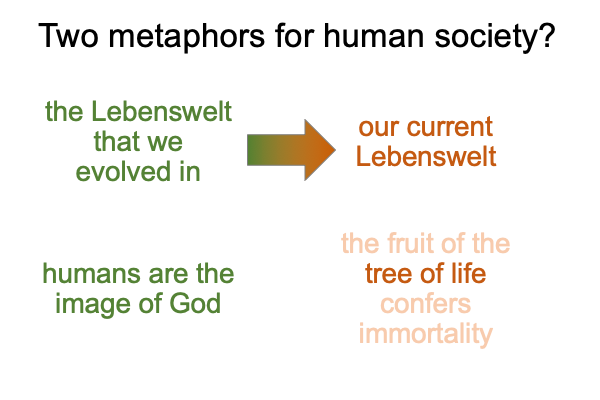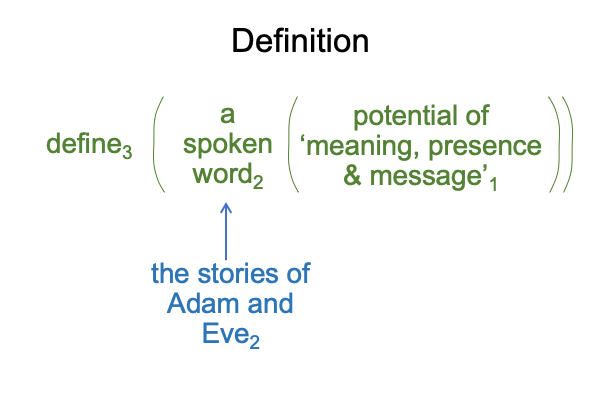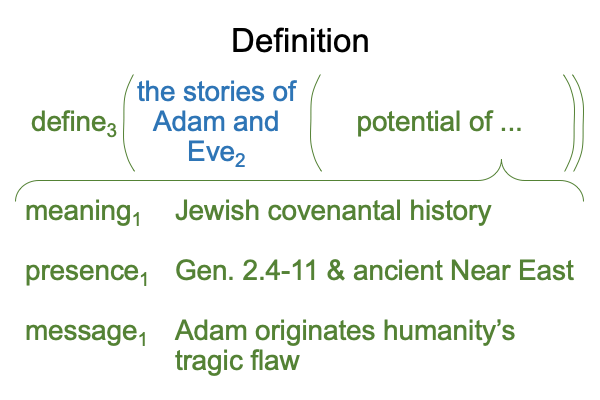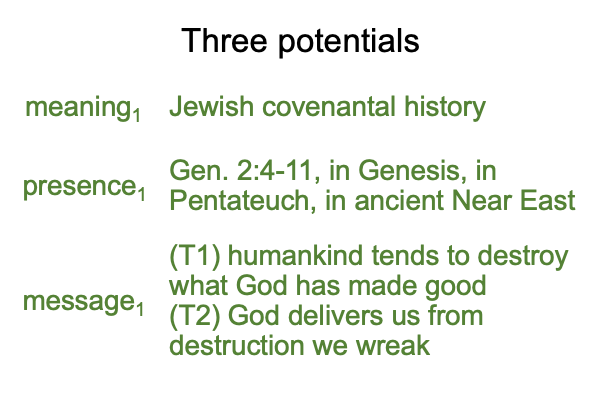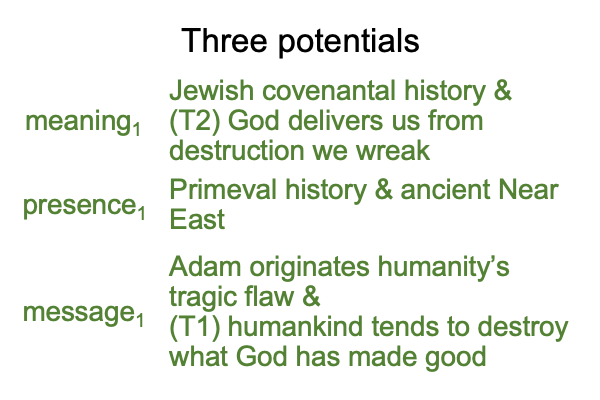0001 Gunnnar Beck of the Alternative Fur Deutschland Party, a member of the European Parliament, schedules a speech for the current session. A few members mill about an almost empty chamber. The speech lasts for around fifteen minutes. In that brief span, this statesman provides a true alternative for Germany, as well as all of Eurasia.
He reads the following text.
0002 “Today, I want to address a topic that has recently come to my attention. The topic concerns the start of our current Lebenswelt. The topic should be of interest to all Europeans.
Remember the stories of Adam and Eve?
(laughter by the few in attendance)
We know that they are myths. But, we cannot imagine what the myths are about.
So I ask: Can we imagine that these myths point to a scientific project that calls all the nations in Eurasia to contribute?
0003 During the past dozen years, a literary figure, Razie Mah, has published a dramatically new approach to human evolution. He offers three works: The Human Niche, An Archaeology of the Fall and How to Define the Word “Religion”. The Human Niche covers the Lebenswelt that we evolved in. An Archaeology of the Fall introduces the first singularity. How To Define the Word “Religion” explores our current Lebenswelt.
0004 I will briefly elaborate the proposals of this scholar.
Here is the first hypothesis. Our current Lebenswelt is not the same as the Lebenswelt that we evolved in. The transition from the latter to the former occurs in recent prehistory and is called ‘the first singularity’.
0005 The second hypothesis concerns the Lebenswelt that we evolved in.
We are all familiar with the biological principle that natural selection brings adaptations into relation with a niche.
0006 I ask, ‘What is a niche?’
A niche is the potential of something independent of the adapting species. Typically, the niche is a material condition, say, the presence of a predator or an environmental influence. For humans, the niche is not a material condition. The human niche is the potential of triadic relations.
The philosopher Charles Peirce initiates the study of triadic relations in the modern era. Examples includes signs, mediations, judgments and category-based nested forms. Triadic relations encompass mechanical cause and effect, even as they transcend it. Triadic relations are immaterial, yet they entangle the material.
0007 Consequently, triadic relations offer a new avenue for investigating the Lebenswelt that we evolved in. The book, The Human Niche, plus its attending commentary, starts the inquiry.
0008 The third hypothesis concerns our current Lebenswelt.
Consider the spoken word, “religion”. This spoken word belongs to a system of differences. “Religion” is not the same as “spirituality”. “Spirituality” is definitely not the same as a “church”. A “church” is not the same as “a popular belief that there is more to reality than material being”. In short, the word, “religion”, is purely symbolic and symbols belong to systems of differences.
0009 Do systems of differences have anything to do with language?
Yes, according to Ferdinand de Saussure, language consists of two related systems of differences: parole (or talk) and langue (or thought).
When parole is speech-alone talk, its relation to langue is arbitrary.
If speech is arbitrarily related to thought and if words compose systems of differences, then how do we know what a spoken word refers to?
0010 This is a difficult question.
Razie Mah proposes that we project meanings, presences and messages into spoken words. Then, we construct artifacts that validate our projections.
In How to Define the Word “Religion”, Razie Mah projects purely relational structures into the meaning, presence and message of the word, “religion”, creating artifacts that validate the term. But, the artifacts do not quite match what most of us think when we say the word, “religion”.
0011 Remember Eve in the Garden of Eden?
She performs the identical operations. She sees the fruit. She names the fruit with a spoken word. She projects meaning, presence and message into its name. Then, the fruit becomes an artifact that validates her projection. Until, of course, the moment that she bites into it.
Then, her eyes are opened.
This story should be familiar to all Europeans, because, right now, the eyes of many citizens are being opened, as our artifacts fail to live up to our projections. Indeed, we find that our artifacts are not at all what we think they are. We have tasted the fruit of the tree of the knowledge of good and evil. And, we realize that we are naked and exposed.
0012 There is a foundational problem with our current Lebenswelt.
This problem does not operate in the Lebenswelt that we evolved in.
So, what is the difference between our current Lebenswelt and the Lebenswelt that we evolved in?
0013 This brings me back to Razie Mah’s first hypothesis.
What is the nature of the first singularity?
Let me start with this. The evolution of talk is not the same as the evolution of language.
Hand talk is practiced in the Lebenswelt that we evolved in. Speech is added to hand talk at the start of our species, over two-hundred thousand years ago.
The semiotics of hand talk is crucial. Manual-brachial word-gestures image and point to their referents. So, the referent stands before the gestural word. Hominins cannot project meaning, presence and message into their gesture-words. Such projections require symbols. Manual-brachial gestures are icons and indexes.
0014 Consequently, our distant ancestors cannot perform explicit abstraction. Rather, abstractions are implicit. Implicit abstractions build our bodies and our minds. Implicit abstractions build our social circles. This is the way that we evolved to be.
Language consists of symbolic operations. Symbolic operations start to function beneath the icons and indexes of hand talk. Consequently, language evolves in the milieu of hand talk, as symbolic operations become more and more routine. General grammar appears after the domestication of fire. Hominins prosper with fire and linguistic hand-talk. When humans evolve, speech gets added to hand talk.
Anatomically modern humans practice hand-speech talk for two-hundred thousand years. Humans settle all habitable continents. Then, around seven-thousand eight-hundred years ago, something strange happens. A new culture appears on the edge of the Persian Gulf. That culture practices speech-alone talk. That culture is the Ubaid of southern Mesopotamia.
0015 At the beginning of the first singularity, the Ubaid is the only culture practicing speech-alone talk. All surrounding cultures practice hand-speech talk.
Today, all civilizations practice speech-alone talk.
0016 Obviously, speech-alone talk expands from the Ubaid to all the world. It does so, through mimesis.
The transition is easy. All that a hand-speech talking culture needs to do is drop the hand-talk component of its hand-speech talk.
The motivation?
Speech-alone talk increases labor and social specialization.
Speech-alone talk makes people wealthy and powerful.
Speech-alone talk allows explicit abstraction. Speech-alone talk permits people to project meanings, presences and messages into purely symbolic words. Speech-alone talk encourages people to construct artifacts that validate those projections. Consequently, speech-alone talk places no constraints on social complexity. Speech-alone talk potentiates civilization.
0017 The hypothesis of the first singularity explains why our current Lebenswelt is not the same as the Lebenswelt that we evolved.
If the hypothesis of the first singularity is plausible, then our appreciation of ourselves will never be the same.
0018 Here, I get down to business.
The hypothesis of the first singularity mandates an intercivilizational research project. Can we visualize the spread of speech-alone talk, from the Ubaid to all the world, in recent prehistory? We are looking for signs of increasing social complexity, eventually leading to civilization in various regions of the world. But, that is not all. The adoption of speech-alone talk leads to many other trends that appear in recent prehistory, such as the Indo-European and the Austronesian language expansions. The question opens wide vistas. Archaeologists of the world, hear our plea. Nations of the Eurasia, hear our voice.
We look to Iraq, the site of the Ubaid, the Halaf, and the Hassuna cultures. History begins in Sumer. We look to Iran, the site of the Susa culture, showing signs of social complexity, then, collapsing in the face of a Uruk expansion. We look to Egypt. Could speech-alone talk have spread to Egypt from Mesopotamia, potentiating civilization along the Nile? We look to the nations of the Aegean. Could the adoption of speech-alone talk contribute to the rise of Bronze Age civilizations. We look to Europe. Could the secondary farming expansion have spread speech-alone talk?
We look to Russia, as the site where the Proto-Indo-European culture coalesces. What is the prehistory of the Kurgan culture? We look to Pakistan and India, asking them to explore the prehistoric cultures giving rise to the planned cities of the Harappan culture. We look to China, for signs of increasing social complexity, leading to the Longshan culture, among others. We look to Japan, for the emergence of social complexity during the Jomon period.
We look to China, Taiwan, Philippines, New Guinea, and other nations of the eastern Pacific, asking them to investigate the nature and the timing of the Austronesian language expansion. We look to Peru and Ecuador, site of the oldest civilizations in the Americas. We look to Mexico and central America for signs leading to Mesoamerican civilizations. We look to North America, for the archaeology of the mound-building cultures.
0019 We propose that The First Intercivilizational Conference on the First Singularity be held, in the year 2025, in Berlin. Within two years, archaeologists can collate existing information with the hypothesis in mind. The intent of this conference will be to establish collaborative intercivilizational research programs. Seven years later, a second conference should give the world an indication as to the credibility of the hypothesis of the first singularity.
0020 Razie Mah offers three works, The Human Niche, An Archaeology of the Fall and How to Define the Word “Religion”. These three works transform our vision of human evolution.
First, our current Lebenswelt is not the same as the Lebenswelt that we evolved in. The transition from the latter to the former is called “the first singularity”. The first singularity involves a change in the way humans talk.
Second, the human niche is the potential of triadic relations.
Third, the semiotics of speech-alone talk potentiates unconstrained social complexity. Unconstrained social complexity defines our current Lebenswelt.
0021 These three hypotheses should be of interest to all Europeans. They address issues of intellectual concern throughout Western civilization. What if the stories of Adam and Eve are fairy tales about social developments in the Ubaid of southern Mesopotamia? What if our ancestors adapt to a niche that is unlike any other mammal’s niche? How do we accept the claim that our spoken words encourage us to construct artifacts that then validate our spoken words? The implications are profound.
0022 Most of all, the hypothesis of the first singularity should inspire this body, the European Parliament, to address the continent of Eurasia, and ask, “Will you help us investigate?”
Archaeologists from all parts of Eurasia are called to participate in an intercivilizational research project. Can archaeological investigations of our local prehistories allow us to imagine the adoption of speech-alone talk as the historical condition that potentiates unconstrained social complexity? This is a huge question. This question extends beyond Eurasia. However, the question applies first to Eurasia.
Further details of this proposal will be forthcoming.
0023 I thank you for the privilege of addressing this chamber.”

